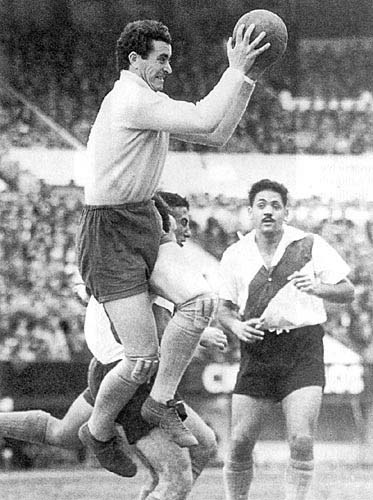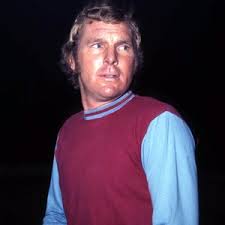Legendary Football Players: Amandeo Carrizo
096. Amandeo Carrizo
Born in Rufino in 1926, Amadeo Raul Carrizo was one of Argentina's most successful and durable goalkeepers, becoming a legend at River Plate where he spent most of his career and gaining a reputation as an innovator in his position, particularly as the first goalkeeper to wear gloves. Enjoying great success in a long career with River, he also played for the national team although his international career unfortunately came during a period of decline for Argentina.
Making his debut for River Plate against Independiente in 1945 while still a teenager, he took a while to establish himself in the team and played just two games as River took the league title that year. Having not played at all as River won the title again in 1947, Carrizo began to become a first choice during the 1948 season and would remain a regular fixture in River's goal for nearly twenty years.
Through the 1950s, Carrizo played a crucial role in making River Plate the dominant force in Argentinian club football. The team won five league titles in just six seasons from 1952 to 1957 with Carrizo almost ever-present, missing just one game through the hat-trick of league titles from 1955. This run of success had brought him into the national team by the time of the 1958 World Cup, where he played all three group games for a weak Argentinian team that went out in the first round.
For Carrizo, the 1960s were a period of frustration as River Plate agonisingly missed out on several major honours. Five times in seven seasons they finished as runners-up in the Argentinian league, and with Carrizo still in goal just a few weeks short of his fortieth birthday, they reached the final of the Copa Libertadores in 1966 to face Peñarol. With the final requiring a play-off, Carrizo was unable to stop Peñarol scoring four times without reply to overturn a 2-0 deficit.
Playing his last game for River Plate in December 1968, more than twenty-three years after his first, Carrizo moved to Colombia where he played for two seasons for Millonarios in Bogota, before finally ending his playing career in 1970 at the age of 44.


Search My Football Facts & Stats
Web site designed & hosted by Paul Yarden © 2013 at Homestead™